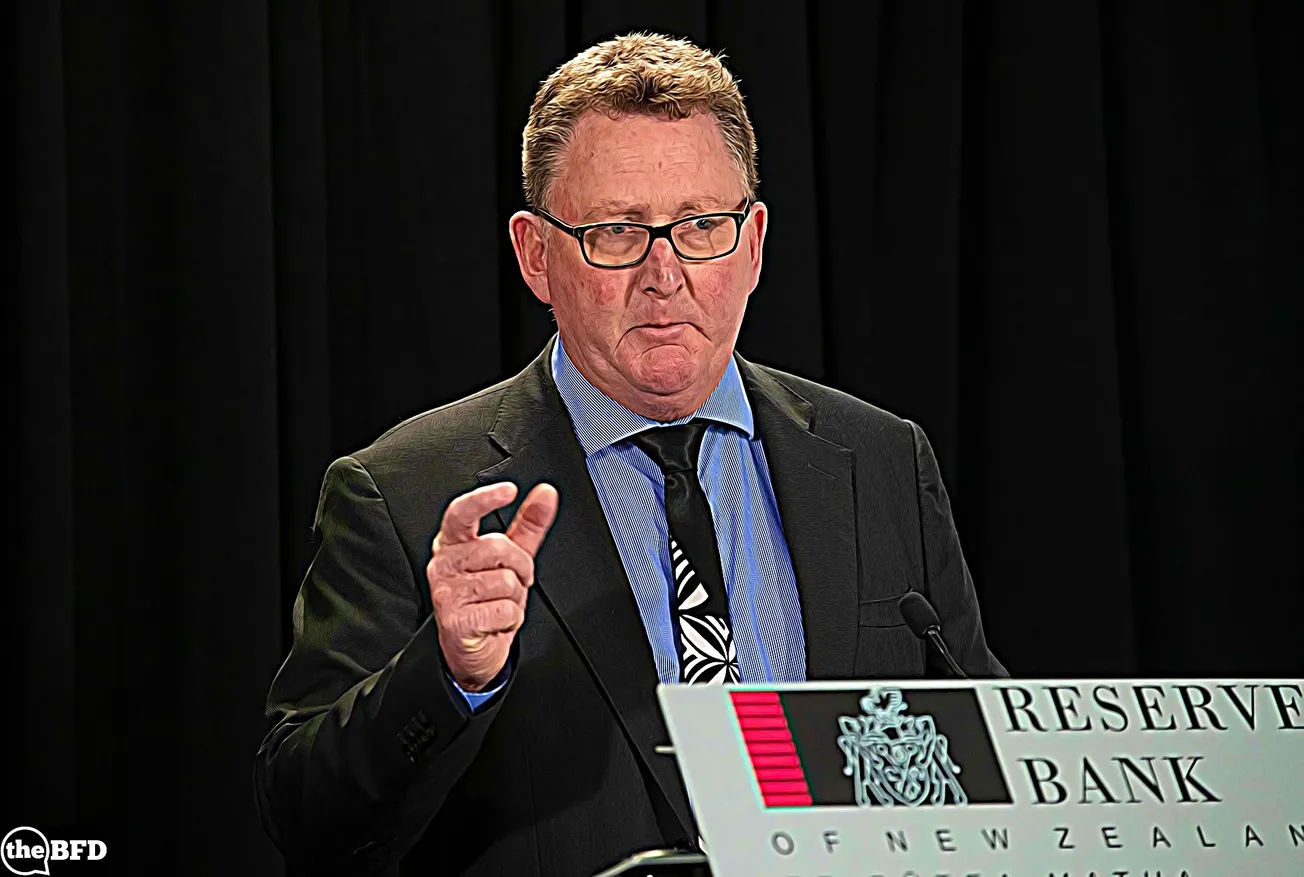Table of Contents
Adrian Orr, the governor of the Reserve Bank, has recently been reappointed for another five-year term by Minister of Finance, Grant Robertson. Robbo has been lavish in his praise of the governor, while plenty of others think he has done an awful job.
Rather than lowering the official cash rate all the way to zero (or even making it negative) when the Covid panic started damaging the economy in early 2020, Orr effectively printed money and gave cheap loans to our mostly Aussie-owned trading banks.
As most will recall, these actions drove up house prices at an unprecedented rate.
The Reserve Bank seemed unconcerned and even mentioned how high house prices boosted confidence.
Of course, there is no such thing as a free lunch and in 2021 inflation started racing away with all that extra money sloshing around.
Initially, this was all blamed on supply chain blockages and, with people still somewhat panicked by Covid, not much was done.
Eventually, in late 2021, Orr slowly started raising interest rates and scaled back his money printing, but still kept offering cheap loans to the trading banks.
The governor doesn’t accept any criticism of his lethargic response because apparently nearly every other reserve bank was just as cautious.
He now also blames the war in Ukraine for our high inflation, even though the conflict didn’t start until late February 2022. The war could not have materially affected reported inflation in New Zealand until about August this year!
Not everyone in the media buys into Orr’s bluster. Jenny Ruth from BusinessDesk has been doing a good job nipping at the governor’s heels for a while now and has voiced similar criticisms.
Jenny also noticed the prime minister recently indulging in a spot of bank bashing.
Ardern said banks should take a “good hard look” at whether they were earning their social licence to operate and that they were wrong to be booking such hefty profits.
“In this current environment where we are experiencing a significant cost-of-living issue for all New Zealanders, I feel a responsibility to call on those who may have the ability to ease that pressure to consider how they may do so, and I include the banks in that,” she said.
Never mind who has been helping the banks’ profitability.
But one of the reasons the banks are so profitable right now can be sheeted home directly to the RBNZ.
It controls the amount of settlement cash there is – the balances the banks hold with the RBNZ, which are used to facilitate interbank transactions.
Before the emergency Covid measures, the central bank used to impose penalties on banks that exceeded their allowable settlement cash balances, but those penalties were abolished with Covid’s advent.
Because of the RBNZ’s money-printing activities during the Covid crisis and its ongoing scheme to provide banks with cheap funding, settlement cash has risen dramatically from $7b to $8b daily before Covid to $53.32b on Friday [11 November]. The money-printing programme is known as the large-scale asset purchase programme (LSAP) and the RBNZ spent about $55b on it, and the cheap funding programme is known as the funding-for-lending programme (FLP), which reached $16.9b last week.
FLP is the cheap loans to the trading banks I mentioned earlier.
The FLP, under which banks can draw three-year money with the interest set at whatever the official cash rate is, has a maximum limit of about $28b, with each bank’s allocation directly related to their balance sheet.
The FLP is scheduled to end on Dec 6 and at least one bank, BNZ, is planning to draw down its full allocation before then. That means it will draw another $700m, taking its total to $2.1b.
But compare the money-for-jam 3.5% and soon-to-be 4.75%, if the economists’ forecasts are fulfilled, that the banks are getting for parking money with the RBNZ with the measly 2% to 2.59% the banks are making from actually doing banking.
I know banks are seen to be very safe institutions, but actual banking isn’t riskless while parking money with the RBNZ is entirely risk-free.
If you assumed settlement cash would stay steady at $50b for a year and the OCR remained at 3.5% for that year, that would be $1.75b of risk-free earnings the banks get to share.
So, at least part of Ardern’s bank-bashing essentially amounts to blaming the banks for RBNZ policy.
BusinessDesk
Yes, Robbo’s right-hand-man has been stoking Aussie bank profits.









